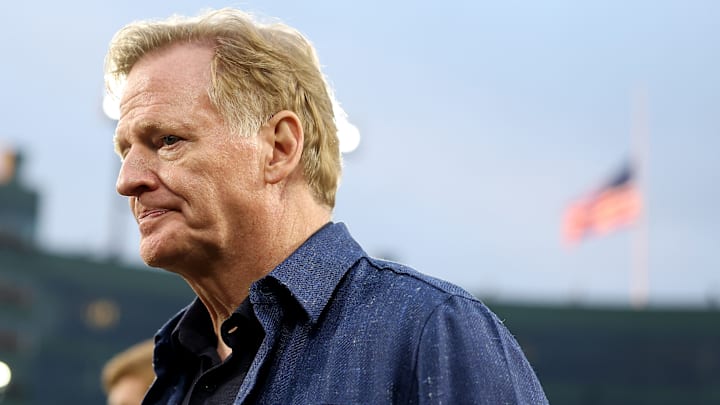The NBA is reeling this week, as yet another gambling scandal has rocked the league — this one involving both inside information regarding a player (Miami Heat guard Terry Rozier) and an active head coach (Portland Trail Blazers head man Chauncey Billups) alleged to have help rig underground poker games.
But this is more than just a basketball story. This is a story about every major North American professional league, all of which have had shockingly few qualms about fully embracing the legalization of sports betting around the country. While it's come to Adam Silver's door right now, it'll be at someone else's all too soon — and based on the available evidence, it doesn't seem like anyone is interested in doing anything but sticking their heads in the sand.
At least, that seems to be the main takeaway from how the NFL has chosen to respond to this week's news. Per Tom Pelissero, the league office sent a memo to players on Friday, reiterating the rules of its gambling policy: Namely, that there is zero tolerance for not just abetting fraud or betting on one's own team but placing a bet on any NFL game.
NFL players must not:
— Tom Pelissero (@TomPelissero) October 24, 2025
- Place any bet on NFL football
- Throw or fix any game
- Share confidential info
"Players are also required to report a gambling debt of $10,000 or more and should be especially mindful that large gambling debts may make them vulnerable to bad actors… https://t.co/gTx5bw0rsn
Which is fine, in so far as it goes. Betting on your own sport has to remain a hard line, lest the public's confidence in the sport's integrity erode completely, and any reminder of that fact is a useful one.
But it's also hard to take this seriously as a response, much as it's hard to take seriously the notion that the NFL — or the NBA or MLB or any other league — is interested in meaningfully pushing back against the ways in which sports gambling has pervaded everyday life.
NFL continues to lead from behind when it comes to betting on sports
Which isn't to say that Roger Goodell is blase about the prospect of players trading inside information or betting on NFL games. I have no doubt that they take those infractions seriously and see them as the existential threats that they are.
It's just to say that not even an existential threat is enough to convince Goodell or any of his counterparts to turn off the fire hose of money that the legalization of sports gambling in states across the country has wrought. In an increasingly perilous economic landscape, one that's seen the hollowing-out of cable television, gambling money is among the most reliable sources of revenue that sports leagues have left. The fact that said revenue comes from a diverse array of streams is just an added benefit, one that must seem like a salve for commissioners like Goodell.
In hindsight, it feels naive to have expected or hoped that the NFL or any other league would have taken any meaningfully proactive steps to create a firewall between players and gambling culture. There's simply too much money at stake, and everyone involved has far too much incentive to engage in short-term thinking. And I'm not so clueless as to think that these problems didn't exist even when gambling wasn't widely legal; there was nothing stopping something like the Rozier scandal from happening years ago, and you can make the argument that legalizing betting has in fact brought this particular cockroach into the light rather than allowing it to flourish in darkness.
But let's be very clear about the priorities of everyone involved here. Goodell is trying to thread an impossible needle here: The NFL cannot afford the perception that its games are fixed, but they also feel like they can't afford not to enjoy the spoils of the current environment. He can send out all the memos he wants; if anyone thinks that he's willing to be anything but reactive about this issue, I have a bridge to sell them.
At this point, sending out a reminder like this feels like shuffling deck chairs on the Titanic. Goodell and his ilk can't really do anything but cross their fingers and hope the next scandal is someone else's problem to deal with. The horse has fully left the barn, the checks have been cashed and the priorities have been all-too-clearly communicated.
